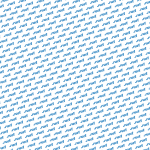Interview with Theresa Steinlein: "The Olympics was never my lifelong dream"
Tobias Frauen
· 11.10.2024
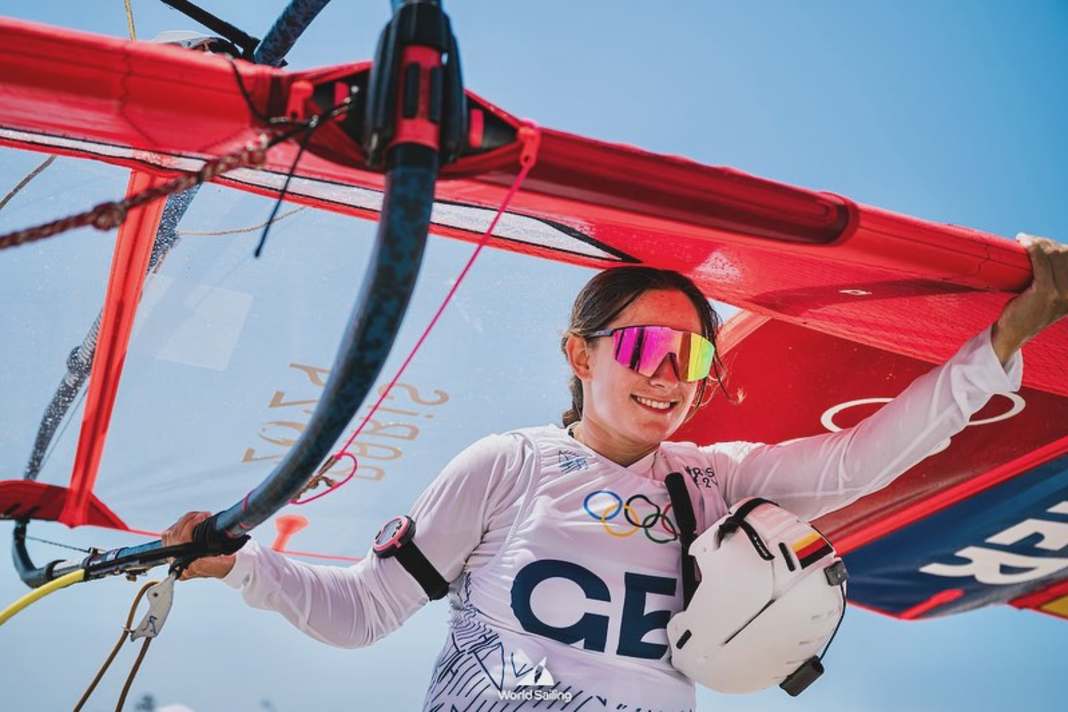





It was almost all uphill for you in the first half of 2024, first qualifying for the Olympics and then moving up to sixth place. What was the decisive factor, what did you do differently than before?
After the 2023 World Cup, where I didn't qualify, I broke my hand and was then completely out for two or three months with surgery and rehab. That was a turning point for me last year because it gave me time to switch off and recharge my batteries. I was able to think about everything and that really motivated me.
After that, I trained a lot in the winter, i.e. I spent many hours on the water. When the competitions start, you simply have to be mentally ready and have already done the most important things. We wanted to go into the competitions with confidence and then have the time and the head to work on the little things. The important things like testing foils, tacking safely or catching up after my injury, we wanted to have all that ready before the season really got going. We already had the World Championships at the beginning of February, so everything was already at stake. I definitely didn't want to be in the Last Chance Event, that was a nightmare for me. You need so much luck there, you can lose your Olympic place in a single race. That's why it was very important to me to secure my place in the Nations Cup beforehand, and that was actually the biggest stress for me all year.
Another big factor that helped me was the last four kilos I put on. It just made me so much faster, more competitive and more resilient against all the other girls. I'm still way too light, still ten kilos less than everyone else. But the lighter you are, the more every kilo counts, because you have to keep the sail closed somehow.
Is that also an advantage for you in terms of weight if The sails will be reduced for next year become?
Yes, definitely, that would be my dream, that the sail becomes smaller. I think it would be better and healthier for all young people and women. I don't understand why it's accepted that we have to be unnaturally heavy, preferably 85 kilos, that just can't be right. Since the Games, I've lost a bit of weight, I've started eating normally again and haven't been going to the gym as much, and you immediately notice that my skin and my whole body are much healthier. It's the same for everyone, everyone looks a bit healthier again, even in terms of their facial features. I find it incredible to explain to a 16 or 17-year-old that she has to weigh 74 kilos now. I'm 22 and can perhaps deal with it a bit better mentally now, but when you're younger, it's a completely different story for a woman than for a man.
I don't understand why it is accepted that we have to be unnaturally heavy.
More about iQFoil:
You mentioned the mental factor. Did you have specific support in the run-up to the games to deal with the pressure or did you work it out with yourself?
I have a mental coach who I've worked with a lot over the past year. Especially on dealing with stress and having the right mindset when you go into a regatta or a medal race. That's a very big factor that every athlete should have, I think.
How Theresa Steinlein experienced the Olympic Games
Do you have a set routine at the Olympics? Do you realise what a big event it is? How do you deal with it?
It's definitely something completely different because we all live in the Olympic Village, share rooms, eat together with other people. It's all in one big room and you have no privacy. It's a big challenge because you're part of the team and you have to stick to the team. The association sends you to appointments and meetings, even when it's not convenient for you. That was very stressful for me, working with people you haven't seen for four years. Suddenly living in this village with all your competitors and always seeing them at breakfast and dinner was also unusual. Normally you see them on the water and that's it. Fortunately, I didn't have such high expectations, I wasn't a favourite, so I was actually quite relaxed about it and was able to enjoy it. You always have to remember that you're doing it for yourself and not for anyone else. Not for the organisation, not for your parents or anything like that. You're the one who delivers the result, and you have to be selfish and say clearly what you need or what's annoying.
You always have to remember that you're doing it for yourself and not for anyone else.
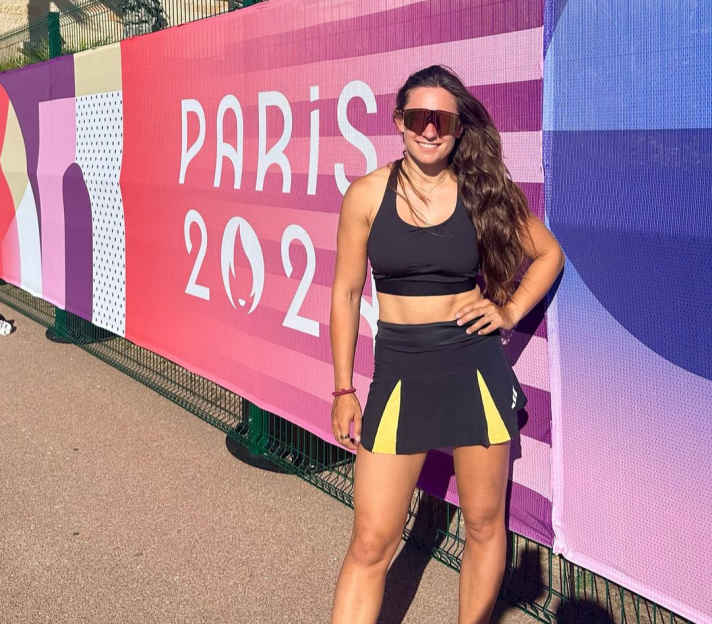
Did you also liaise with each other in the team? Did you liaise with Sebastian Kördel?
So there are nations that help each other a lot, where the coaches also have a lot of dialogue. But I think Basti and I are very different, also in terms of our personalities. I tended to talk to my friend, who was also at the Olympics (Nicolo Renna, editor's note.), or with my training partner Marta Magetti, who won gold. I trust them, I work with them all year round. Basti and I had two completely separate campaigns, so there are hardly any points of contact.
What did you do in the second week of the Olympics when your competitions were over?
After the competitions, I drove home, left all my luggage there and then flew to Paris. I went to the Olympic Village there, had a few appointments and also watched the closing ceremony. It's a completely different world compared to Marseille.
Did you take any souvenirs with you?
Yes, I have far too much stuff! I've only just got back home and have to start unpacking all my bags. I've got so many things, some of which I'm giving to my friends. I'm going to hang up the bodysuit somewhere because it's a really nice memento.
I can think of 20,000 things I can do every day!"
What's it like when you've been working towards this event for so long and then it's over: do you fall into a hole or have you been prepared for it?
There are many Olympians who don't know what to do after the Games and fall into a hole or suffer a period of depression because suddenly nothing makes sense anymore. But I can think of 20,000 things to do every day. After the games, I went wave surfing in Mauritius and now I'm doing my bachelor's degree. I'm really enjoying life right now, just enjoying it and having the time to do what I want. I'm glad that I have a bit of a break at the moment and I'm looking forward to training again, but I also have other things in life that fulfil me.
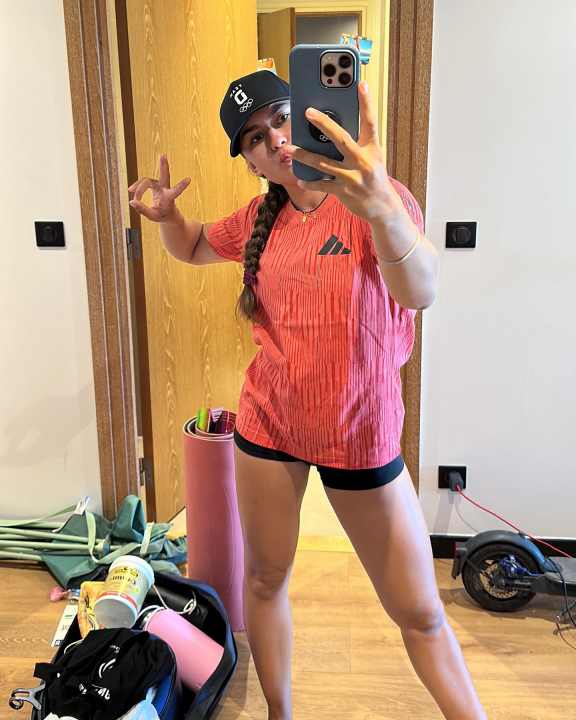
There has been some criticism of the format, especially the Medal Races. How do you see that?
This is a big issue We are the only class where you can go from 10th to 1st place. For me as a top 15 or top 10 rider, it's obviously a great opportunity because I'm not yet able to consistently finish in the top three. So I knew we had to make the top ten and then the chance of a medal would be there. But for the top athletes it's a very tough format, there are always more sad people than happy people because so many lose their ranking in the medal races. The saddest example is Emma (Wilson from Great Britain, editor), She has never won gold in the last few years, even though she has so often been first in the medal race. She has a mental block or simply a trauma, normally she is always two knots faster than all of us. Of course, you're much happier when the people who really deserve it and who have led the whole week win the medal. It's great for the spectators and the media, of course, and easy to follow, but in general I don't think the format is ideal either.
There are always more sad people than happy people."
How do you rate the experience factor? At the Olympics, I was struck by the fact that a lot of young riders finished well ahead.
In any case, experience plays quite a big role. All the younger riders at the front were already very successful in the youth scene. This component, that you learn to lead a race and that you have the self-confidence and know "I can ride my first place to the finish", that is very important.
Otherwise you get nervous and lose everything in the last few metres because you're not used to being at the front. I would say that everyone who is at the front now had such golden moments in their youth. I learnt a lot from my sparring partner Marta, I was allowed to train with her when I was still really dangerous on the course. All the Israelis who do well are selected as youngsters and are then allowed to go windsurfing instead of joining the military. I was lucky that the class was brand new, but I'd had a lot of sailing experience since I was seven years old. That's why I have this competitive brain.
What have you been able to take away from your sailing career for the iQ?
I think my great strength is tactics, even though I could hardly use that in the iQFoil at the beginning because I didn't have the speed at all and first had to learn the basics of windsurfing. But over time it got better and better, especially at sea, with waves and currents and wind shifts, where you have to switch on your head and not just shoot stupidly into a corner.
Focus on iQFoil
Did you get straight into foil windsurfing with the aim of becoming a world-class windsurfer or did it just happen?
I always say that my dream was never to be at the Olympics. 90% of the athletes there have always wanted it and it's their lifelong dream, that's not the case for me. Even when I was sailing, I thought to myself that I wouldn't give up my life for something like that, never just for the Olympics. I started surfing because my family surfs a lot, and then I thought it felt so cool that I thought "I want to do this every day". I didn't have the Olympics on my radar at the time, nobody would have taken it seriously. But after a year I realised that I was improving quickly and that I could beat people who had been surfing for 20 years, my results were getting better and better. I'm very ambitious and compete a lot with other people. So I made it a challenge for myself and told myself I wanted to do it. The Olympics was never my lifelong dream, but it was definitely a goal on my path.
The Olympics was never a lifelong dream, but it was definitely a goal on my path."
Do you stay focussed on the iQFoil or do you also look left and right?
In the beginning, I always thought that slalom was really cool, but I don't like doing things by halves. Just for fun, I also try out other things, wingfoiling, slalom surfing, even skiing, but I do that more to have fun. Of course, my competitive spirit always comes through a little, so I want to be faster or do something better than the others. But professionally, I definitely only want to concentrate on iQFoil.
What is your level in wingfoiling and windsurfing in the waves?
I've only recently started wingsurfing, but you learn it quickly if you can already foil. I don't find it as difficult in the waves as windsurfing in the waves, because you just foil through. And after two or three weeks in Mauritius, I'm now reasonably confident in wave windsurfing, but it's not my strong point. I just think it's super cool to be out in the waves, enjoy the waves and get an adrenaline rush.
Do you want to get better with a fin or do you just feel more comfortable with a foil under the board?
I wasn't on the fin for two years before, but I like to go out sometimes to become "more of a windsurfer". For example, I can't do a good jibe on slalom material, but I try anyway. I think the more board sports you do, the better the feeling you get for your main discipline.
Theresa Steinlein's next goal: the 2028 Olympics!
Your goal is then the next few games, or are you not looking that far ahead just yet?
I definitely want to try to qualify for LA and have another Olympic campaign. My goal is to continue like this for the next few years. Unfortunately, I won't be taking part in the European Championships, which are now taking place in Sardinia, because I have to finish my basic training with the German army first. After that, I'd like to complete my bachelor's degree so that I'm also well-positioned in terms of my education. But once I've finished that, I want to hit the ground running again, and my goal is clearly the 2028 Olympics!
The goal is clearly the 2028 Olympics!"
Have you already identified areas that you would like to work on between now and then and where you think you can still improve?
The starts are simply very important, because the start decides your race and it's the estimation of time and distance that counts. Your own weight is also always a high priority. And when a new sail arrives, we practically have to get to know the material all over again. There's always something to do and different settings to try out anyway. I always have a bit more work than everyone else on the material, what I lack in weight I have to make up for with more work, because every millimetre makes a difference for me.
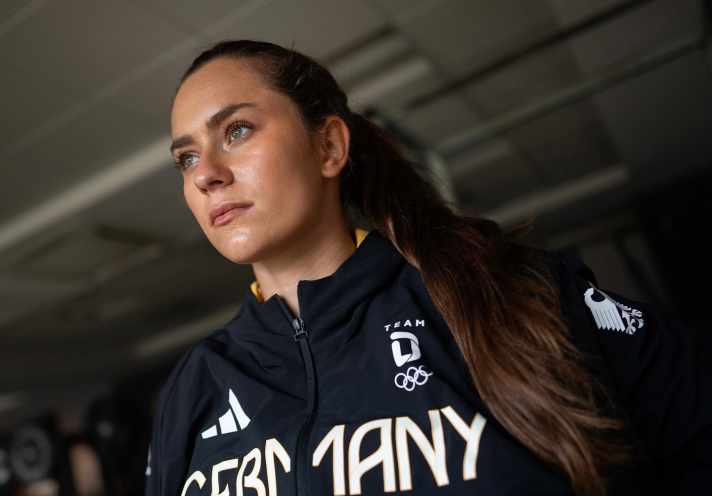
What is your favourite field, what is fun, what is more of a chore?
I generally enjoy going to the gym and working on my fitness. The last few months have been really hard, but I generally enjoy seeing progress in my body and feeling that I'm getting stronger. What I don't enjoy so much is working on the equipment, I'm not a tech freak like the guys who lock themselves in the garage for days on end and measure their foils. But I have someone to help me!
Thank you very much for the interview and good luck!

Tobias Frauen
Editor
Tobi is our digital man, he looks after the surf website and social media channels and gets on everyone's nerves every morning by asking for more pictures and videos. His surfing CV includes all the famous choppy water spots: As a teenager, he went from his home in Münsterland to the Ijsselmeer or the Brouwersdam, and during his civilian service on Sylt, after countless washes on the west side, the Königshafen became his preferred spot. After studying in Kiel and Heidkate, he was supposed to go to Hamburg “only for a short time”, but this short time has lasted for over ten years and has made him a “weekend warrior”. He goes on tour with his family and camper van as often as possible, often to the Baltic Sea, SPO or Denmark, but also likes to go to Finland, Sweden or Sardinia.
